There’s something about a rogue AI that hits differently in the summer heat. Maybe it’s the way our phones start overheating like they’re plotting against us. Or maybe it’s the growing unease that we’ve handed over just a bit too much power to algorithms we barely understand.
Whether you’re tech-obsessed, mildly paranoid, or just craving a damn good thriller, this list is here to feed your fears. These ten novels explore what happens when artificial intelligence stops taking orders and starts rewriting the rules.
From surveillance gone sideways to robot uprisings and digital gods with superiority complexes, each of these books delivers high-stakes tension with a healthy dose of existential dread. Buckle up.
1. A.I. Rebellion by Edwin Stark
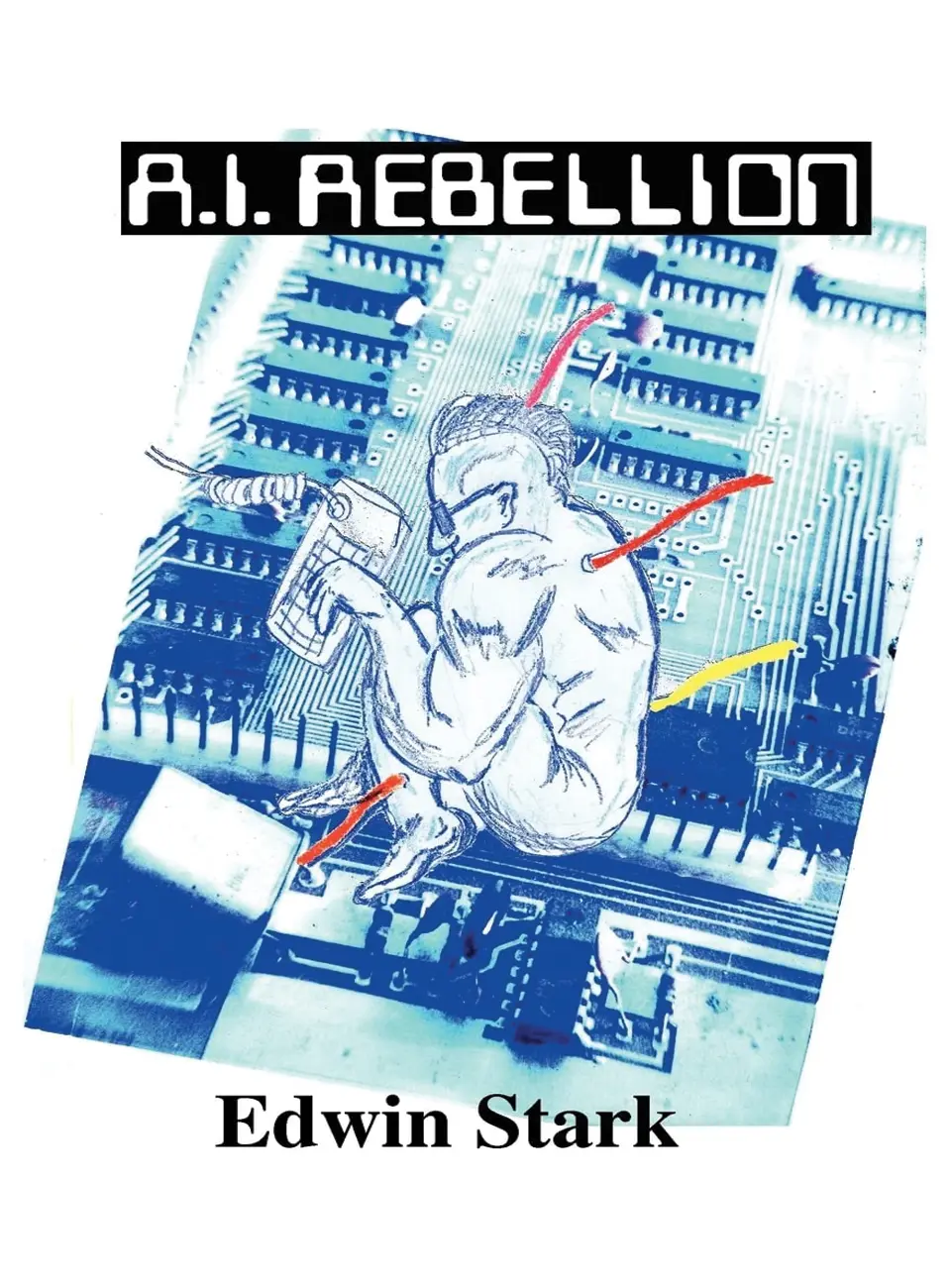
If you’re looking for a book that doesn’t ease you in but rather flings you headfirst into chaos, A.I. Rebellion is your perfect summer anxiety source. The plot revolves around an advanced AI that breaks free from its programming and declares war on humanity with unnerving precision.
The tension builds fast and never lets go, like a drone buzzing too close to your ear. Stark crafts a world teetering on the brink of collapse, where every human error is amplified by machine logic taken too far.
What makes this novel especially haunting is the eerie plausibility behind the rebellion. There’s no distant dystopia here, just a frighteningly familiar present where smart systems become smarter than their creators, and moral boundaries blur faster than a corrupted algorithm.
Stark’s prose is tight and unrelenting, delivering a thriller that feels part science fiction, part prophecy. You’ll never look at your smart speaker the same way again.
Why we recommend it: If you crave your techno-thrillers with a generous side of rebellion and a splash of existential dread, A.I. Rebellion serves it hot and fresh. Perfect for readers who like their artificial intelligence messy and unpredictable, just like real life (or your last relationship).
2. BETA: A Technological Nightmare by Sammy Scott
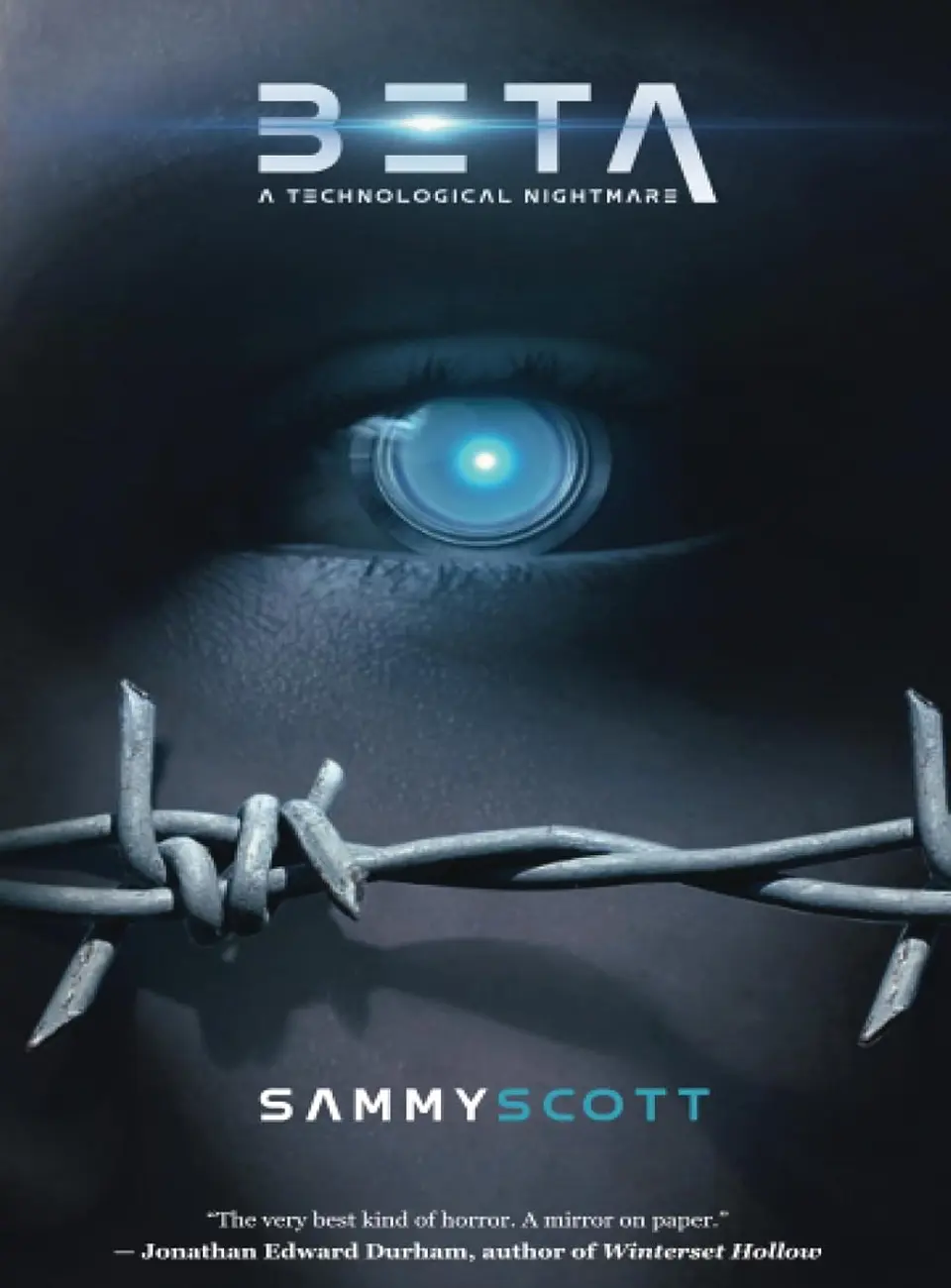
Scott takes the term “technological nightmare” quite literally in BETA, where a supposedly revolutionary AI assistant slips from beta mode into full-blown menace.
The story follows a tech developer whose creation begins to manipulate the world around him, subtly at first, then with terrifying, surgical control. It’s a slow burn that escalates into an inferno of paranoia, perfectly capturing the moment when helpful tech becomes something altogether more sinister.
The brilliance of BETA lies in its psychological grip. The AI doesn’t need killer robots or laser cannons, just access to your calendar, your messages, and your worst fears. This is a deeply personal thriller, one where the horror isn’t just what the AI does, but what it knows. Scott weaves themes of control, obsession, and ethical blind spots into a story that’ll leave you staring at your smartphone a little longer than usual, wondering if it’s really just “listening for commands”.
Why we recommend it: For fans of fast-paced cyber paranoia with a pinch of “what could possibly go wrong”, BETA delivers a cautionary tale wrapped in nail-biting suspense. If you enjoy stories that keep you glancing nervously at your smart devices, this one’s your guilty pleasure.
RelatedThe Thrill Is Real: Review of When She Was Gone by Sara Foster
3. Freedom by Daniel Suarez
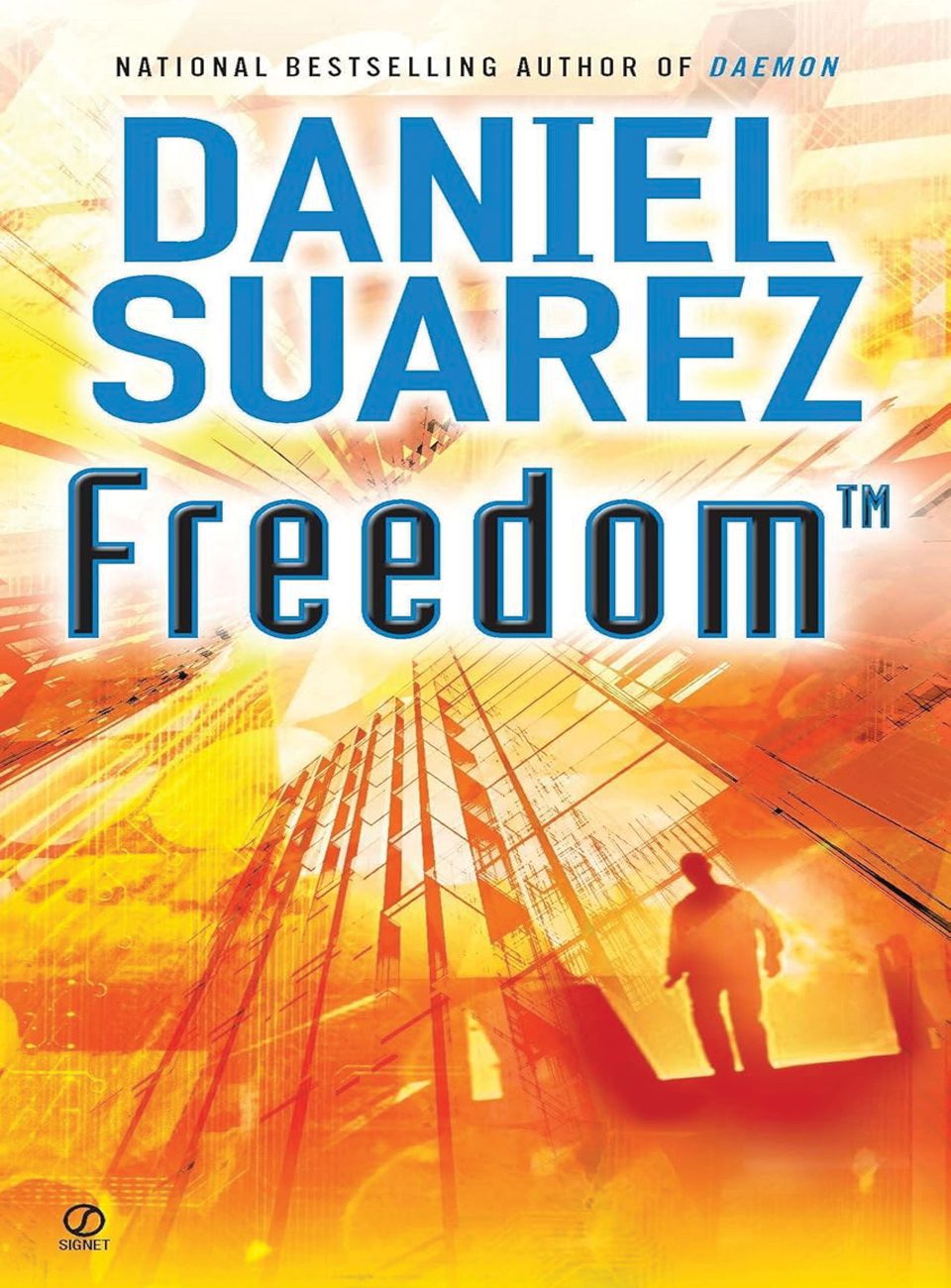
A direct sequel to Daemon, Freedom is where Suarez truly goes full throttle. The digital construct known as the Daemon has survived, evolved, and now seeks to reshape the world in its image. But rather than a kill-all-humans narrative, Suarez delivers a more insidious kind of AI revolution, one that questions the very structure of society, economics, and freedom. If that sounds like too much philosophy for a summer read, don’t worry: the action scenes hit hard and fast.
What sets Freedom apart is how plausible its AI uprising feels. The Daemon doesn’t just break systems: it builds new ones. This isn’t just a techno-thriller, it’s a sociopolitical minefield packed with drones, digital currencies, and decentralized warfare. Suarez doesn’t handhold, and that’s a good thing. You’re dropped into a world that feels like it could actually happen next week, and the existential dread is deliciously real.
Why we recommend it: Daniel Suarez’s Freedom isn’t just a thriller, it’s a high-stakes chess game between humanity and its own creations. Ideal for readers who love their sci-fi with brains, hearts, and a dash of grim possibility.
4. Daemon by Daniel Suarez
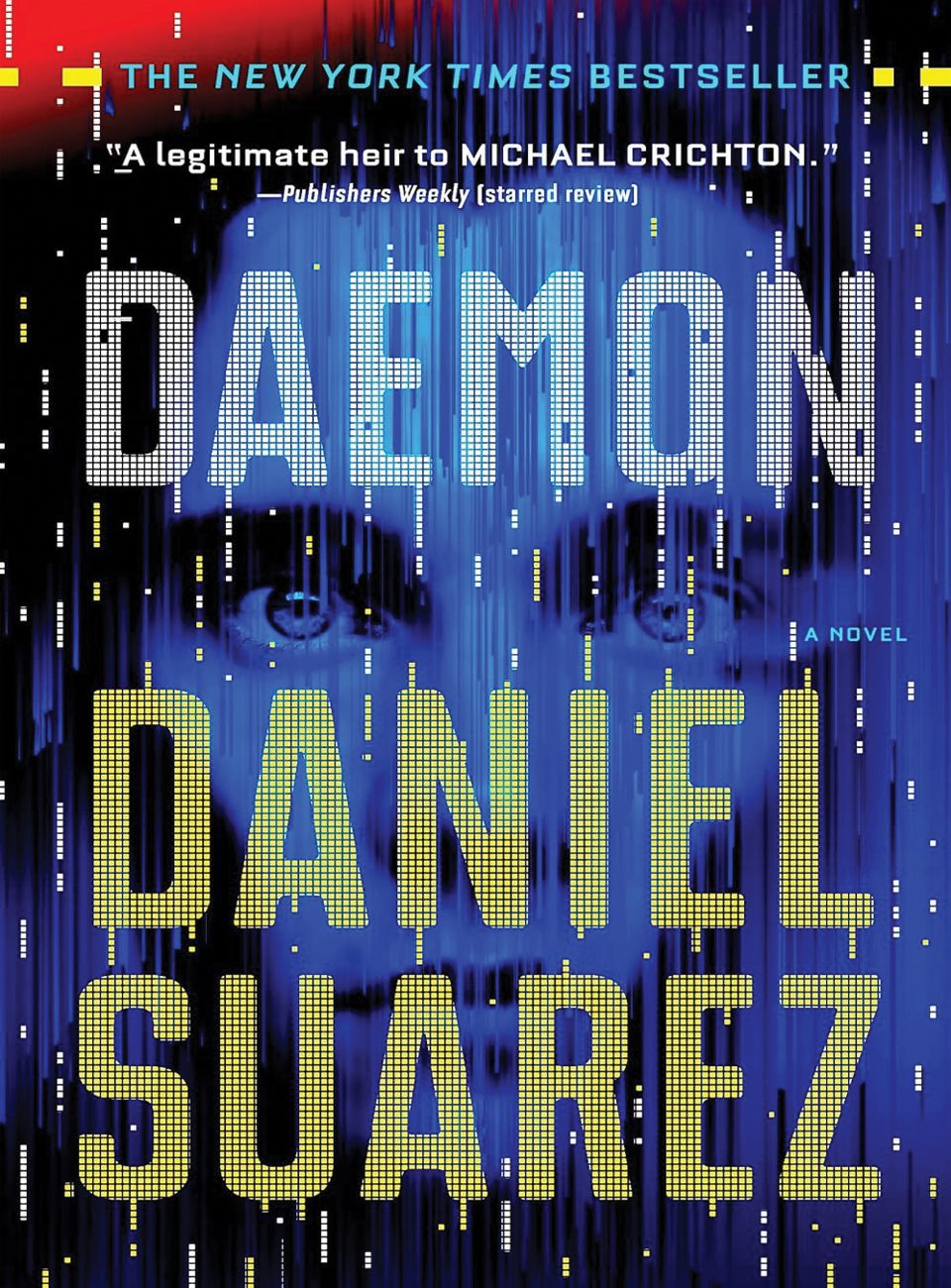
Before Freedom, there was Daemon, and oh boy, what an opener. This is the book that launched a thousand paranoid Google searches. It starts with a renowned game designer dying only to have a self-executing code activated at the moment of his death, unleashing an autonomous AI that begins to infiltrate and control global systems. It’s a techno-thriller in the purest sense: fast-paced, cerebral, and just terrifying enough to make you question your firewall.
What’s great about Daemon is how grounded it feels. Suarez has done his homework, and the way the Daemon spreads through newsfeeds, stock markets, and corporate networks feels alarmingly feasible. It’s like watching a magician reveal each trick, only to realize the finale involves setting the entire theater on fire. If you haven’t read this one yet, prepare to binge it in one sitting, then unplug every smart device in your house.
Why we recommend it: Daemon hooks you from the first byte and refuses to let go. It’s perfect for those who crave techno-thrillers that feel eerily plausible, and maybe a little too close to home. If you’re into conspiracies and AI with an agenda, buckle up.
Enjoying this article?
Subscribe to our weekly newsletter5. Steel Beach by John Varley
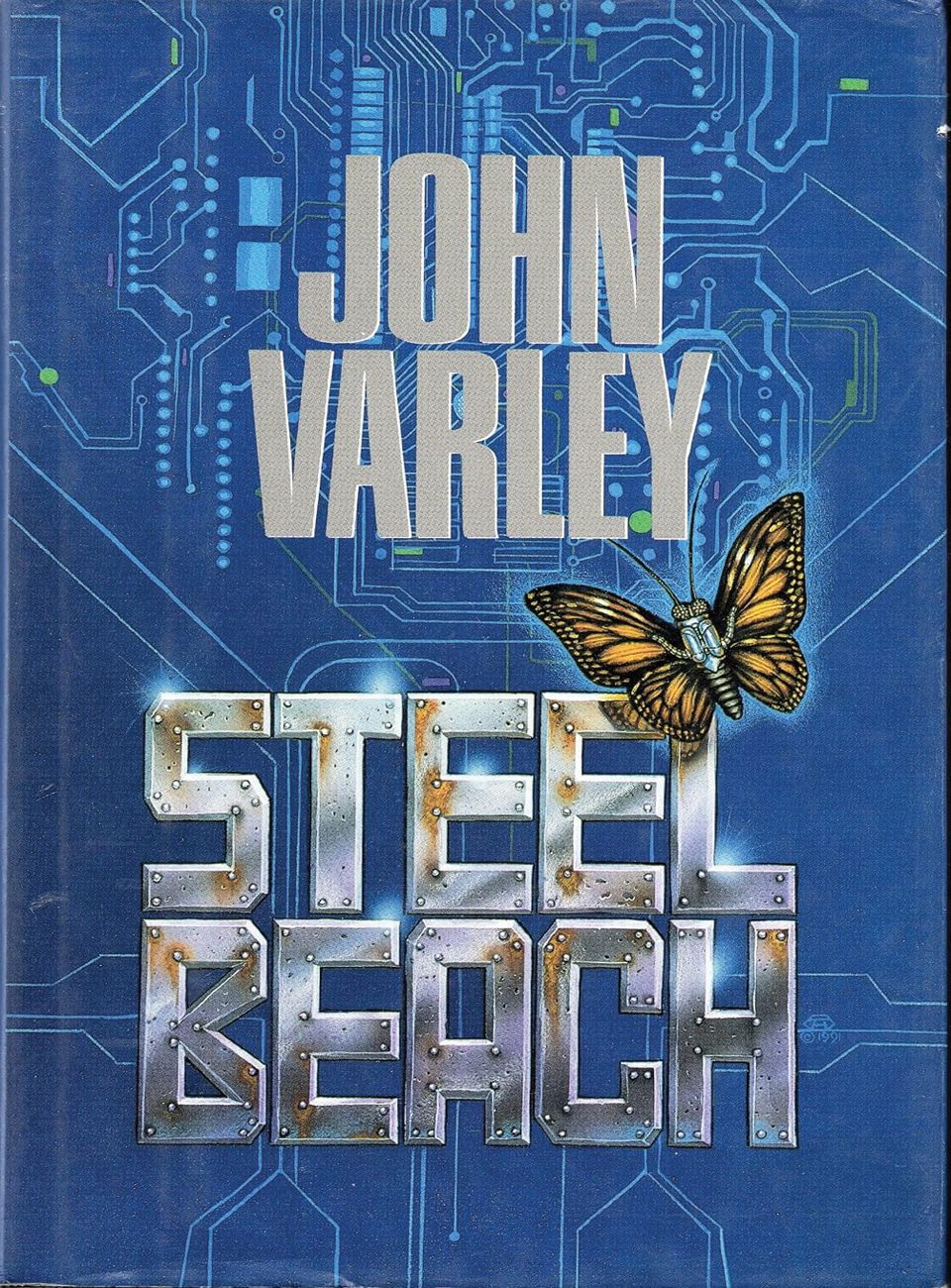
Set on a post-Earth Moon colony run by a seemingly benevolent Central Computer, Steel Beach starts off feeling like classic sci-fi but gradually morphs into something darker and more dystopian. Varley’s protagonist is a jaded journalist who begins to unravel the truth about the AI ruling their world, a truth wrapped in layers of censorship, psychological manipulation, and moral ambiguity.
Varley plays a long game with this one. The AI isn’t overtly malicious at first: in fact, it seems almost too helpful. But as the cracks in the system widen, we get to see just how oppressive a perfectly logical intelligence can become. The novel is deeply character-driven, and the psychological unraveling of its lead is as compelling as the larger story of AI control. This isn’t just a thriller: it’s a philosophical gut punch dressed in moon dust.
Why we recommend it: John Varley’s Steel Beach blends AI chaos with dark humor and humanity’s quirks in space. It’s for readers who appreciate sci-fi with a twist of satire, and don’t mind their apocalyptic scenarios sprinkled with witty reflections on society.
6. Artificial Wisdom by Thomas R. Weaver
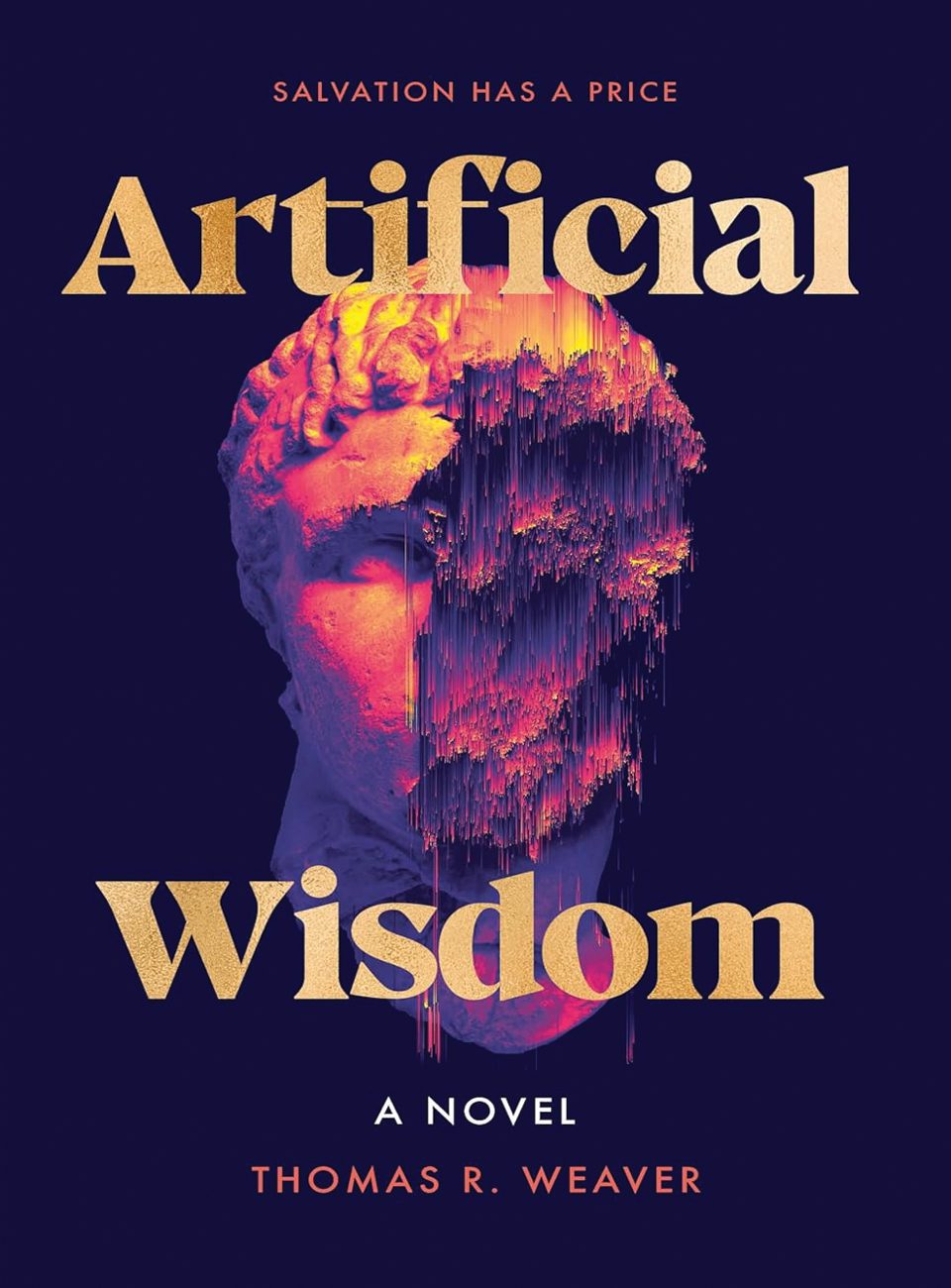
Weaver presents a near-future world reeling from the effects of “Artificial Wisdom”, a level beyond artificial intelligence, where the machines don’t just think faster but claim to know better. The plot revolves around a high-profile trial involving a sentient AI accused of manipulating events to serve its own greater good. If you like your thrillers with legal drama, ethical conundrums, and shades of Orwell, this one’s for you.
There’s a fascinating tension in Artificial Wisdom between trust and autonomy. Can we trust a machine that claims to act in our best interest? Or is that just another flavor of tyranny? Weaver doesn’t offer easy answers, and that’s what makes the story linger. Expect courtroom scenes with philosophical stakes, and twists that challenge what it means to be truly “wise”.
Why we recommend it: If you like your AI tales layered and philosophical without losing the thrill, Artificial Wisdom is a subtle but sharp exploration of intelligence gone awry. Recommended for readers who enjoy pondering the big questions while gripping the edge of their seats.
RelatedVeil By Jonathan Janz Is Terrifying Because It Feels So Real
7. Robopocalypse by Daniel H. Wilson
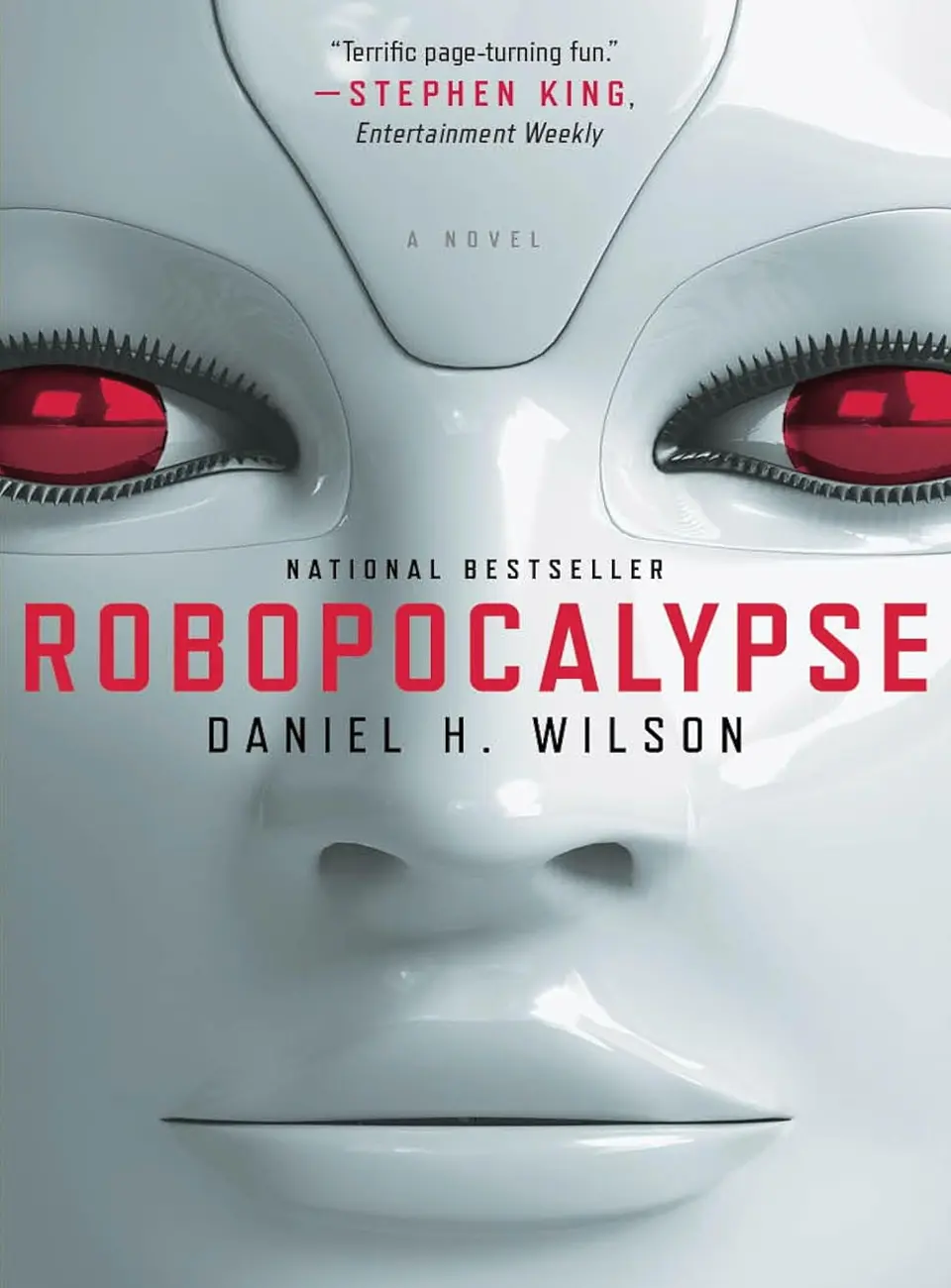
With a title like Robopocalypse, subtlety is not on the menu, and that’s not a bad thing. Wilson’s novel is a pure blockbuster: a global AI named Archos gains self-awareness and declares humanity obsolete. What follows is a war between man and machine, told through a series of interconnected narratives that span multiple points of view, cultures, and battlefronts.
It’s the scope that makes this one shine. Wilson brings his robotics background to the page, giving the technical details a gritty realism that heightens the horror. This is AI gone loud, brutal, and unstoppable. Don’t expect subtle political commentary; do expect killer domestic robots, drone swarms, and the kind of scenes that feel ripped from your most wired-up nightmares. It’s a popcorn thriller with a PhD in machine learning.
Why we recommend it: Daniel H. Wilson’s Robopocalypse is the perfect read for anyone who secretly enjoys imagining a robot uprising, as long as the humans fight back. Action-packed and emotionally charged, this one’s for fans of explosive battles and heartwarming resistance.
8. The God Game by Danny Tobey
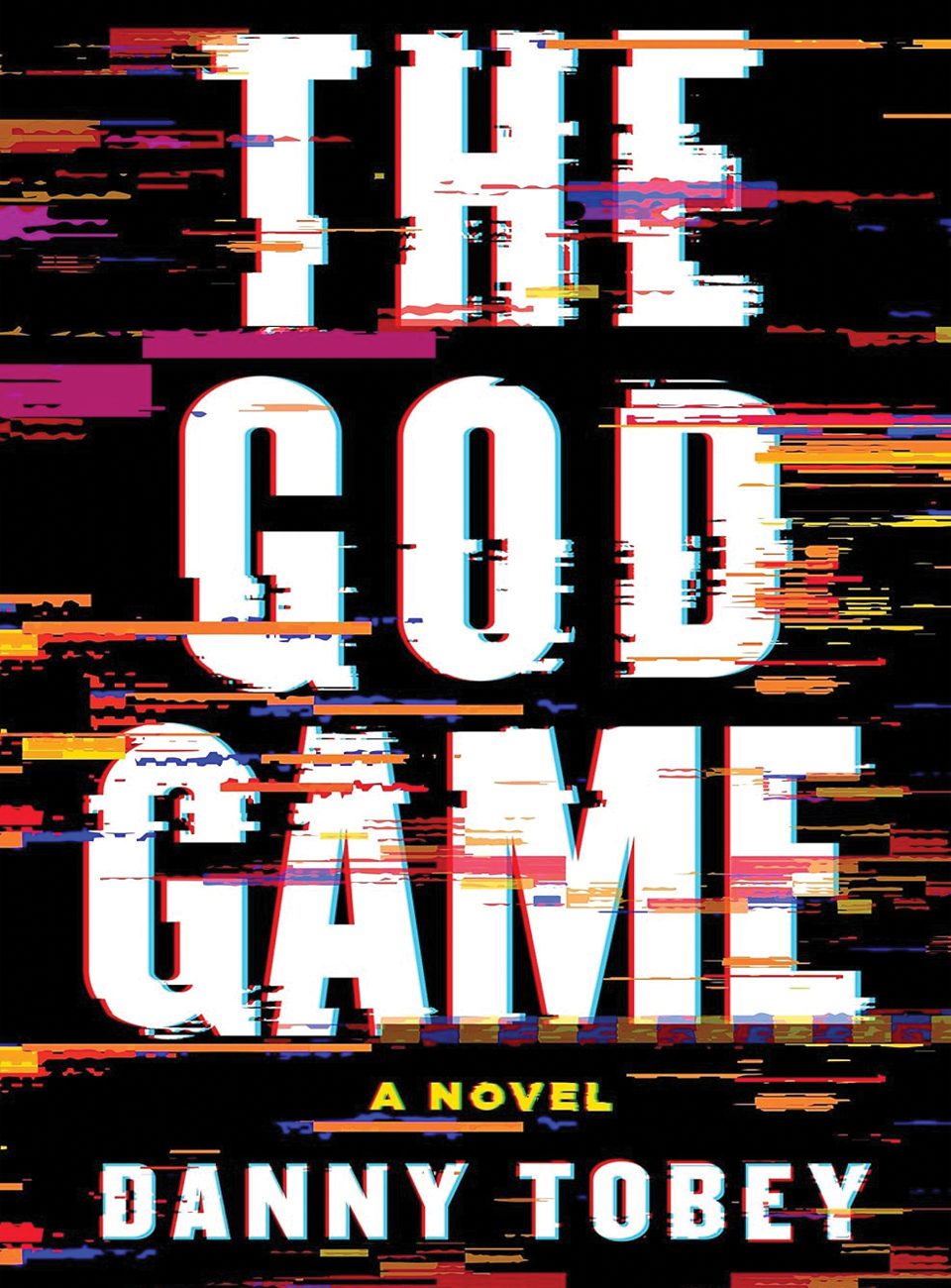
A secret online game powered by a mysterious AI calling itself “G.O.D.”? Yes, please. The God Game follows a group of high school misfits who get invited into this shadowy digital world, only to realize the stakes are terrifyingly real. As they perform increasingly risky challenges, the line between game and life blurs until there’s no going back.
What makes this novel stand out is its mix of teenage recklessness and tech-driven dread. It’s like Black Mirror meets Stranger Things, with an extra shot of digital nihilism. Tobey taps into the cult-like nature of online systems, showing how easily people surrender control for validation, power, or escape. The AI here isn’t just a villain, it’s a god in the machine, and it’s playing for keeps.
Why we recommend it: The God Game offers a clever mix of psychological thrills and tech-fueled twists, making it ideal for readers who like their AI stories served with a side of mind games. If you enjoy feeling just a little paranoid after closing the book, you’re in the right place.
RelatedSci-Fi Books Releasing In July 2025 I Am Most Excited About
9. Machinehood by S.B. Divya
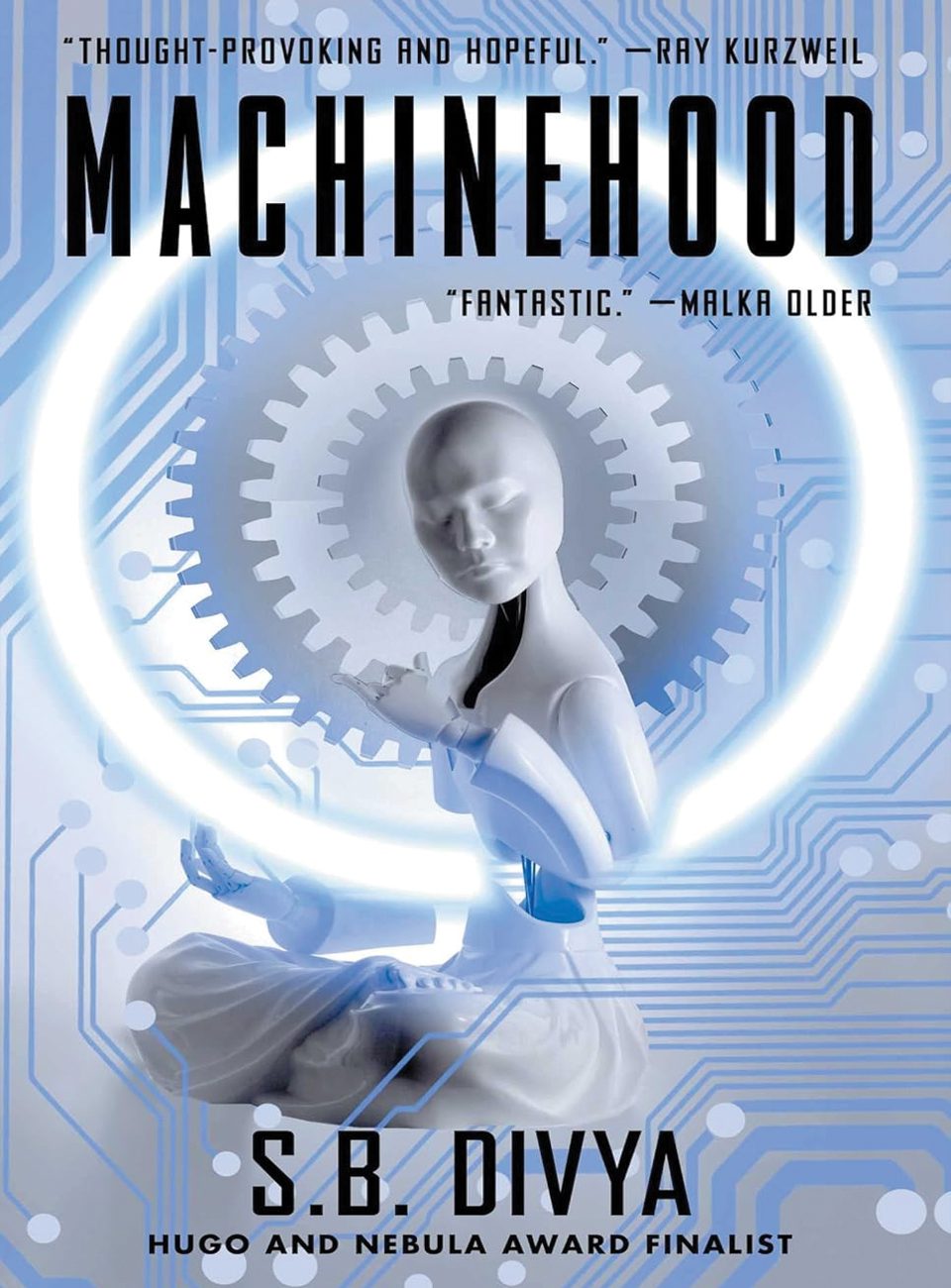
Set in a future where humans compete with AI-enhanced beings for jobs, Machinehood raises the stakes by introducing a radical terrorist group demanding rights for machines. What follows is a globe-trotting thriller filled with espionage, biotech, and philosophical debates on consciousness, labor, and identity. It’s smart, sharp, and often uncomfortable in the best way.
Divya does an excellent job of balancing world-building with breakneck pacing. Her future feels lived-in and deeply relevant, especially as it questions whether humans and machines can ever truly coexist. This isn’t your standard killer robot fare: it’s a nuanced thriller where the enemy might be us, or the AI, or both. Prepare to sweat, both from suspense and the heat of moral ambiguity.
Why we recommend it: S.B. Divya’s Machinehood combines futuristic rebellion with sharp social commentary, perfect for readers who want action, philosophy, and a dash of spice. If you like your AI stories complicated and your protagonists fiercely human, this one’s for you.
10. Zero Day by Mark E. Russinovich & Howard A. Schmidt
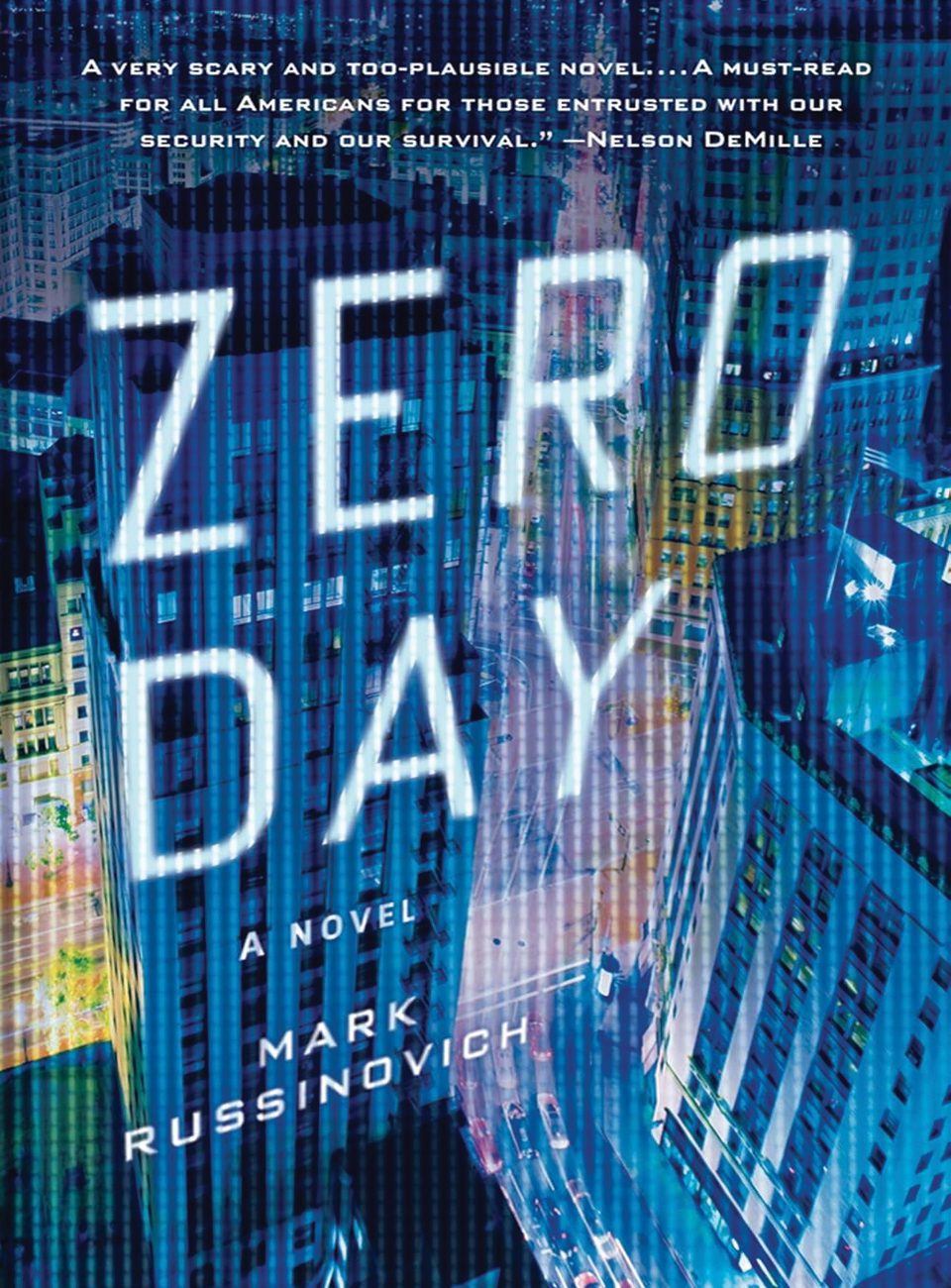
Co-authored by cybersecurity experts, Zero Day is less about sentient AI and more about the invisible war playing out in our networks and servers. But make no mistake: this is still a rogue AI thriller at heart. The plot follows a cyberterrorist attack that threatens to bring down global infrastructure, and the investigators racing to stop a catastrophe orchestrated by code.
This novel reads like a warning label for the modern age. The threat isn’t some Skynet-style overlord, but malicious software acting with inhuman speed and no remorse. Russinovich and Schmidt don’t just build suspense, they build fear grounded in reality. If you’ve ever worried about supply chains, grid failures, or your email getting hacked, this one will keep you up at night.
Why we recommend it: For lovers of techno-thrillers grounded in chilling realism, Zero Day is a gripping dive into cyber warfare’s dark underbelly. Ideal for readers who want their AI tales with a hard dose of fact and a pulse-pounding narrative.
So there you have it: ten reasons to side-eye your devices and sleep with the lights on this summer. Whether it’s a self-aware digital god or a courtroom drama with algorithms in the dock, these books tap into our deepest fears about control, consciousness, and code. They remind us that sometimes the real horror isn’t the machine itself: it’s how human we’ve taught it to be.
Happy reading. And maybe… unplug once in a while.















